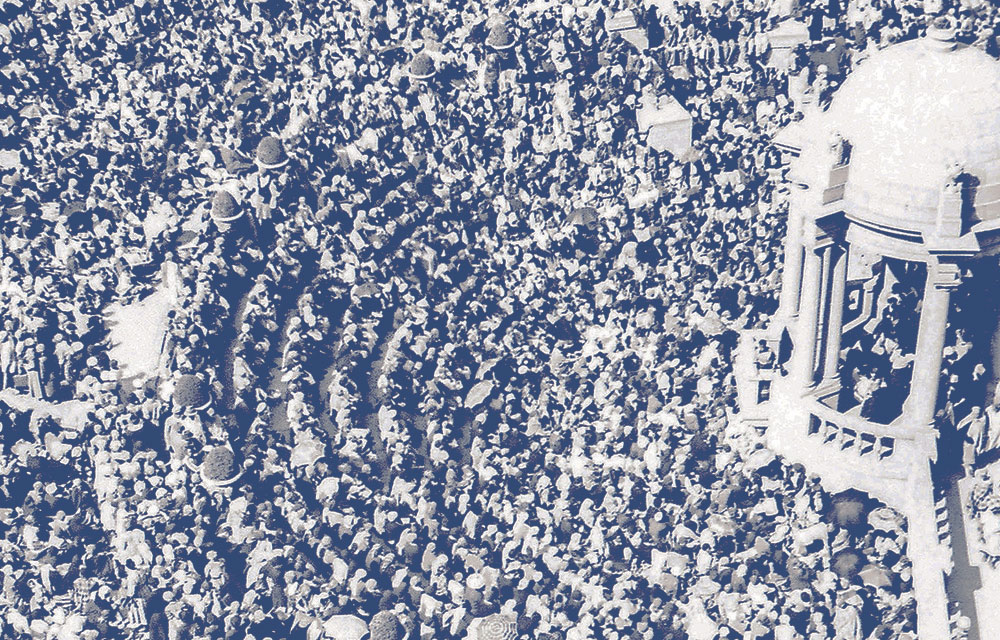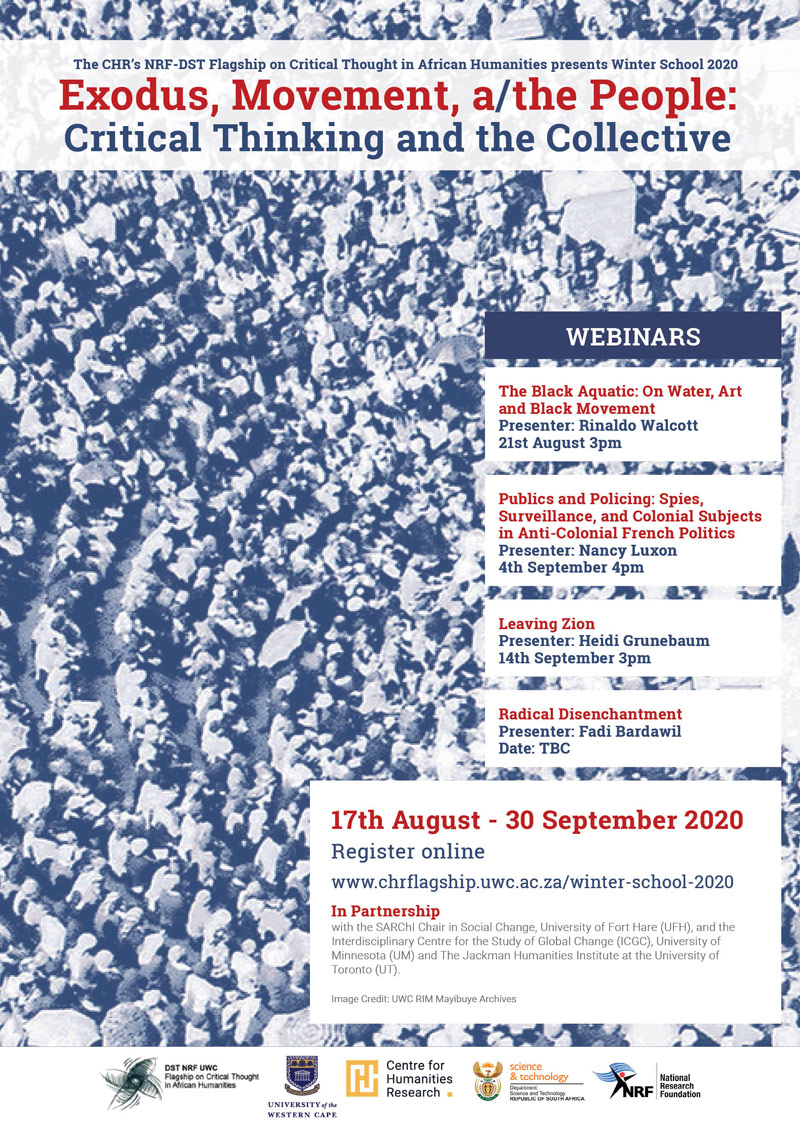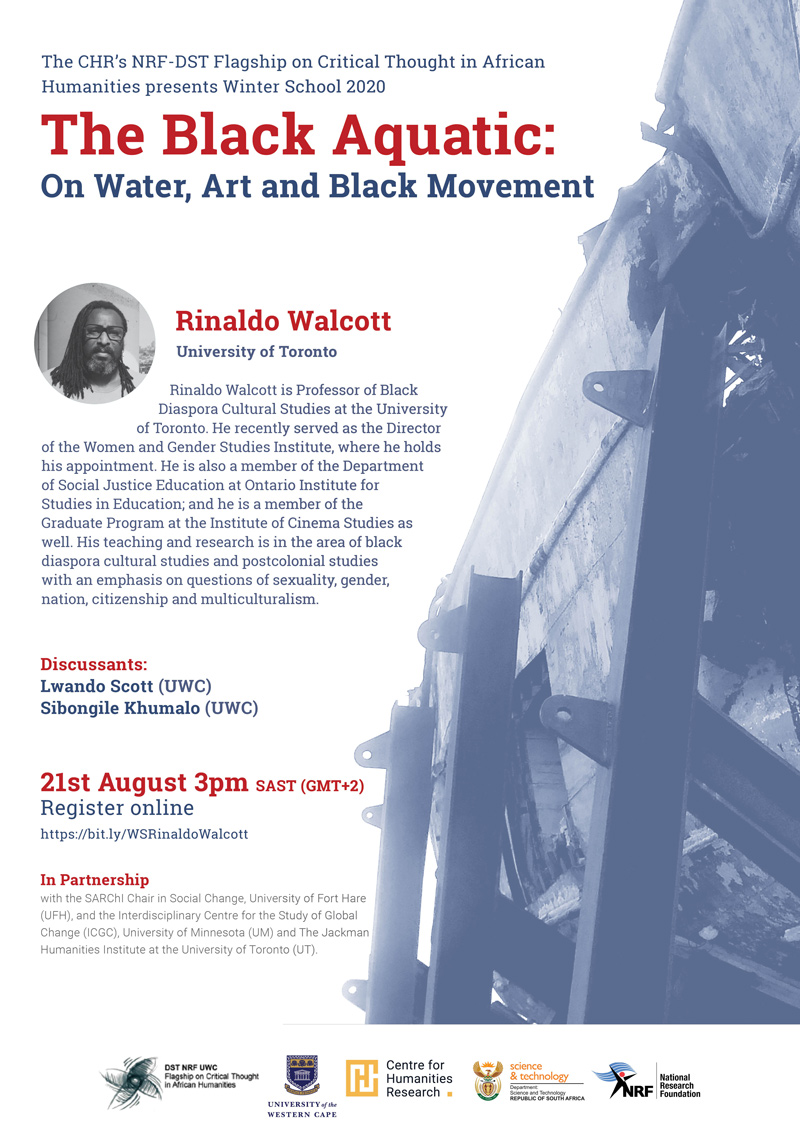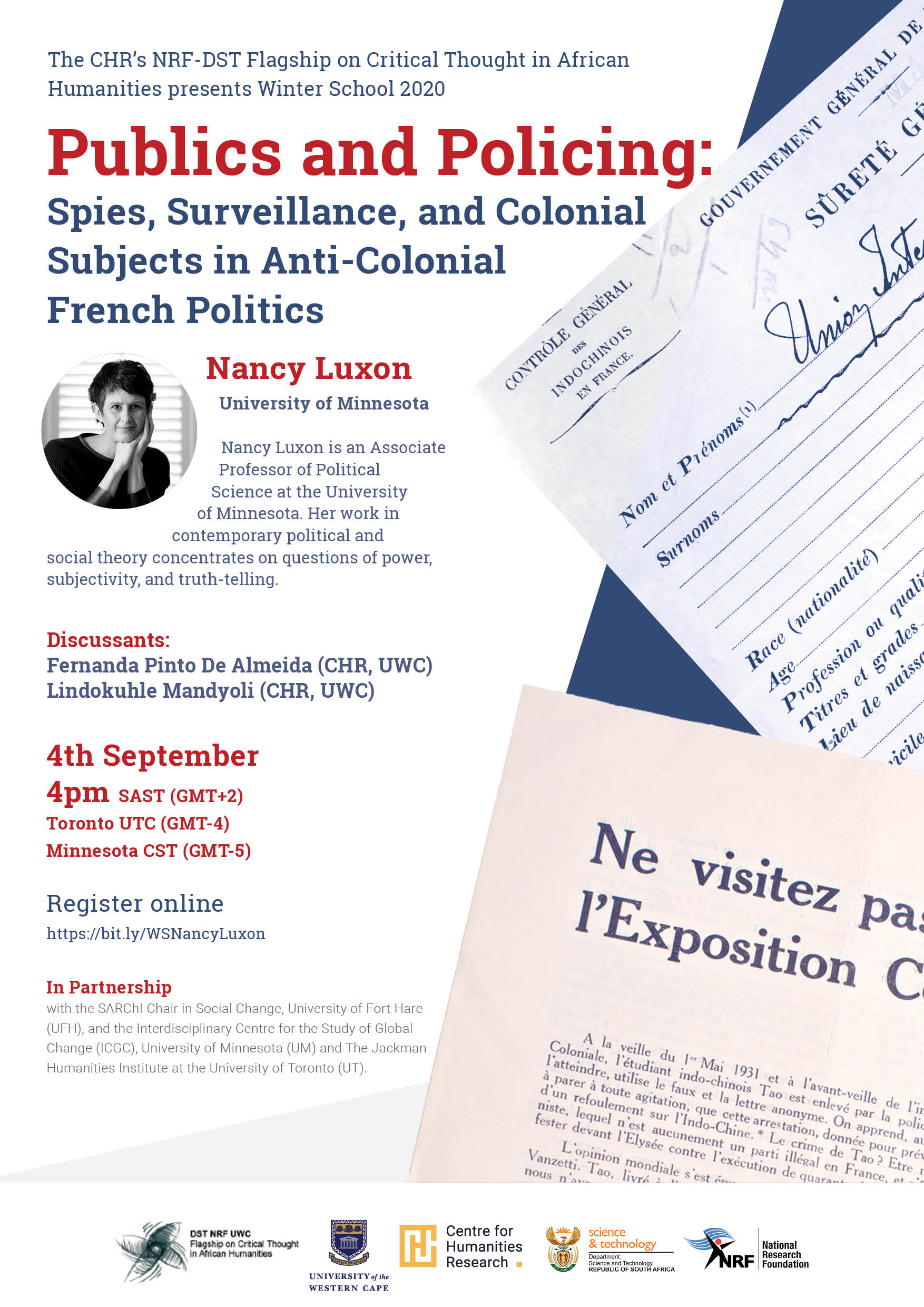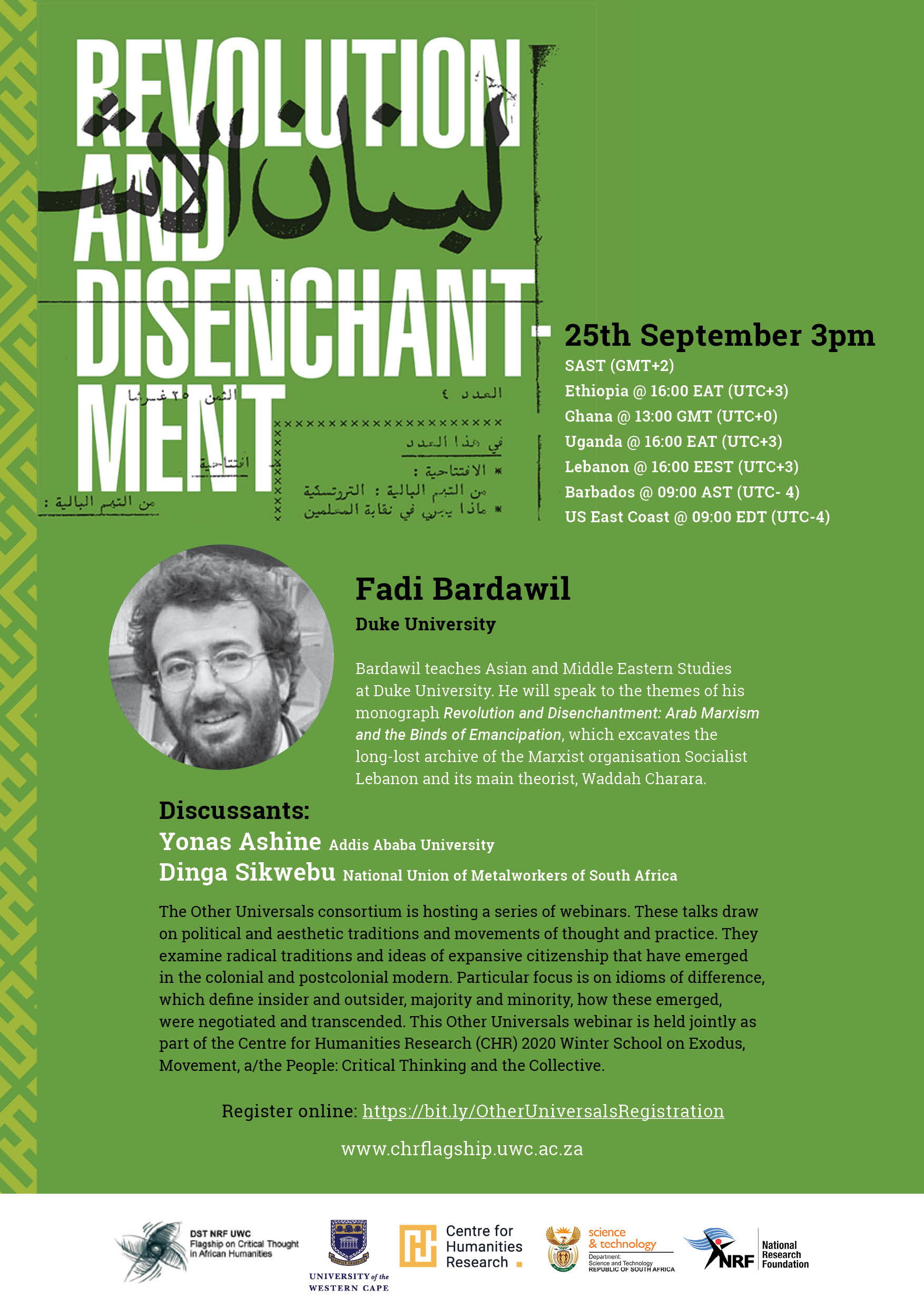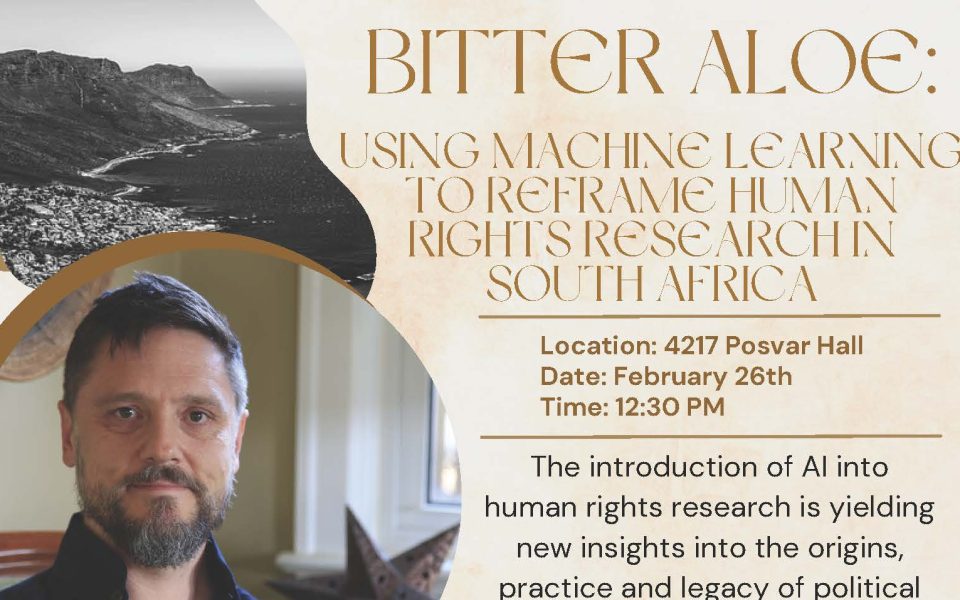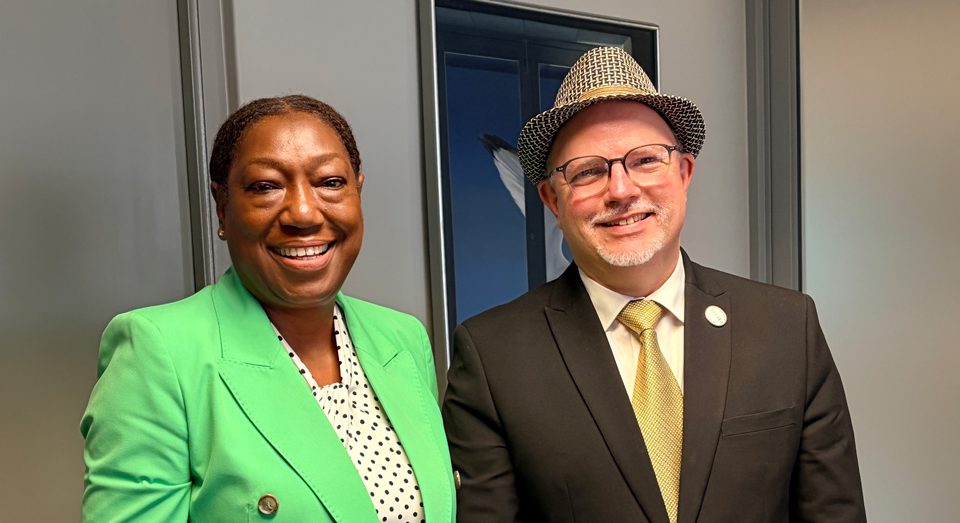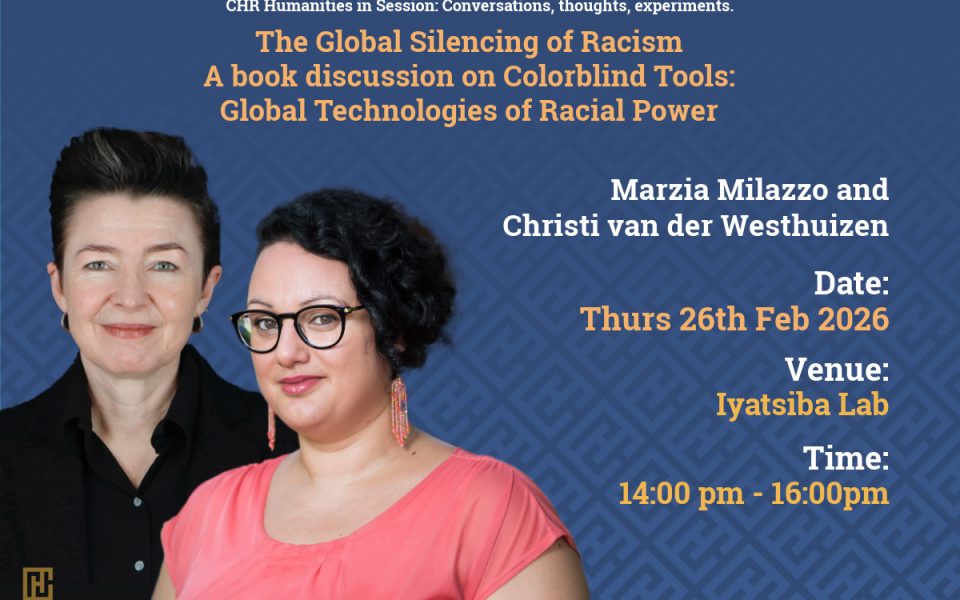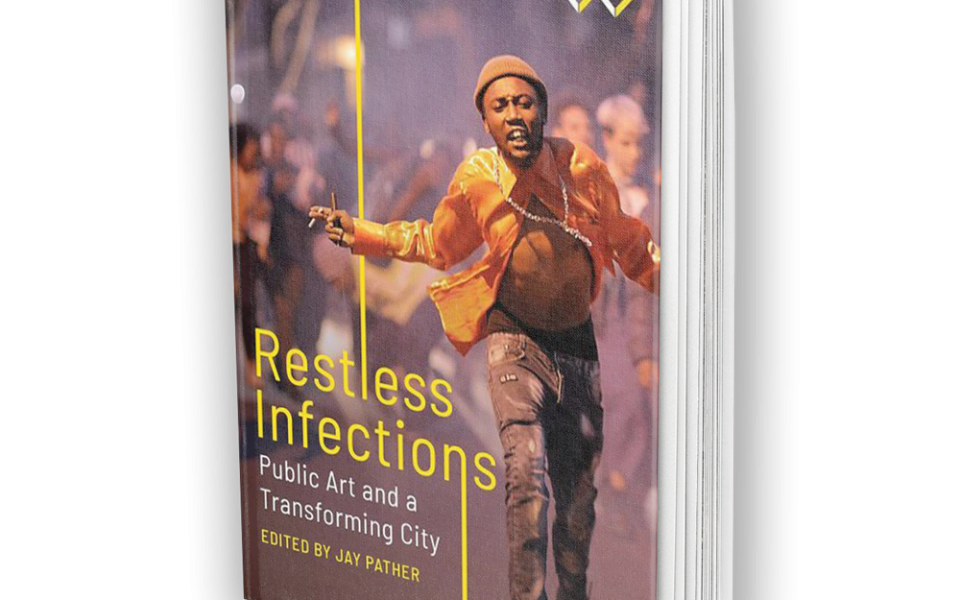WINTER SCHOOL 2020
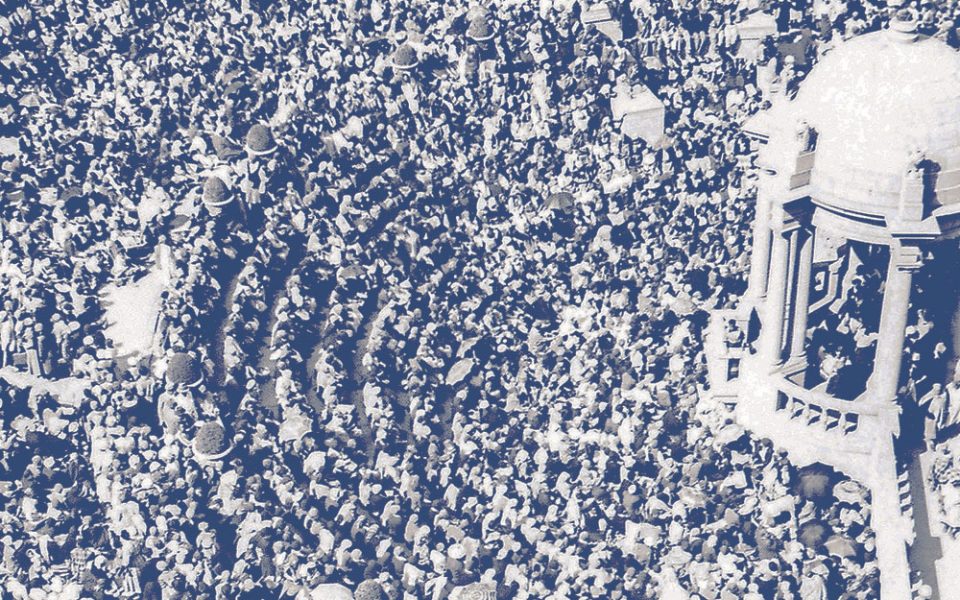
photo Credit: UWC RIM Mayibuye Archives
Exodus, Movement, a/the People: Critical Thinking and the Collective
The annual Winter School in the Humanities, held under the theme of “Exodus, Movement, a/the People: Critical Thinking and the Collective”, and hosted by the Centre for Humanities Research (CHR), University of the Western Cape (UWC), and held in collaboration with the SARChI Chair in Social Change, University of Fort Hare (UFH), and the Interdisciplinary Centre for the Study of Global Change (ICGC), University of Minnesota (UM), The Jackman Humanities Institute at the University of Toronto (UT), will convene remotely this year.
The format of this year’s Winter School, adapted under pandemic conditions, will also allow wider participation than in previous years. Taking the form of a series of webinars, each of the invited speakers will make their lectures available as a written text a week before their respective webinars, at which postdoctoral and doctoral fellows will offer a short discussion of the paper, after which comments and questions will be taken from the online Winter School collective.
On the programme (see below) you will find a link to each webinar session. Please click on the link in order to register. The registration portals include links to each of the papers provided by speakers. Papers will be made available a week before the webinar and will be taken as read before each of the webinars. If you would like to send your questions or comments in advance, please email them, no later than the morning of the respective webinar, to msmithtruscott81@gmail.com or submit them to the Q&A option during the webinar. For any other Winter School related queries or questions please email Michelle Smith at msmithtruscott81@gmail.com.
The Winter School concept note and programme can both be viewed below.
The Black Aquatic:
On Water, Art and Black Movement
Presenter: Rinaldo Walcott
Discussants: Lwando Scott and Sibongile Khumalo
Webinar: 21st August 3pm
Chair: Suren Pillay
Publics and Policing:
Spies, Surveillance, and Colonial Subjects in Anti-Colonial French Politics
Presenter: Nancy Luxon
Discussants: Fernanda AlmeidaFernanda Pinto De Almeida and Lindokuhle Mandyoli
Webinar: 4th September 4pm
Chair: Patricia Hayes
Leaving Zion
Presenter: Heidi Grunebaum
Discussants: Shai Gortler and Ajohche Awungija
Webinar: 14th September 3pm
Chair: Valmont Layne
Radical Disenchantment
Required Reading: Fadi Bardawil, Prologue, Chapter 5 (Exit Marx/Enter Ibn Khaldun) and Epilogue in Revolution and Disenchantment: Arab Marxism and the Binds of Emancipation: Duke University Press, Durham and London 2020.
Presenter: Fadi Bardawil
Discussants: Yonas Ashine and Dinga Sikwebu
Date: 25th September 3pm
Chair: Heidi Grunebaum
“Exodus, Movement, a/the People: Critical Thinking and the Collective”
In the title of this year’s Winter School an echo of what inspired it can be heard, Bob Marley and the Wailer’s classic, “Exodus.” The displacement of Marley’s “movement”—“Exodus / The movement of Jah people”—by the “critical thinking” in question might suggest a division of labour. The Winter School aims to provide a space in which precisely this division between manual and mental labour might be undone: we proceed on the assumption that every thought always entails a corporeal element, not merely its “raw material” but as its driving force. If there is no thought without “movement,” nor can there be critical thinking without others. The global pandemic, which has required mass self-isolation, has for many borne the message that to think at all requires other people. Ideas are not formed, so it has been suggested, in contemplative isolation, and then relayed to others; communication is a basic condition of thought itself.
First formulated before the global pandemic, the collaboratively conceived call for Winter School participation took as its foundation the long recognized ambiguity in the term “people.” From its enunciative claims in constitution preambles to its subjectivations through revolutionary movements and right wing populisms, from Stuart Hall’s parsing of the temporal conjunctures that pull the “popular” into different fields of meaning to Ernesto Laclau’s tracking of the excess called up by the term, “people” names at once a firm and slippery signifier for constituting politics and critical thinking.
The mechanism of political freedom as the possibility of a global people was thematised by Arendt in On Revolution in relation to political shifts in the question of representation at a time when “the people” was colonised by the question of who belongs to the nation in early 20th century European political thought. Giorgio Agamben—whatever our misgivings about the Eurocentrism of his “bare life” discourse—narrows the matter in Homo Sacer: “Every interpretation of the political meaning of the term ‘people’ must begin with the singular fact that in modern European languages, ‘people’ also always indicates the poor, the disinherited, and the excluded. One term thus names both the constitutive political subject and the class that is, de facto if not de jure, excluded from politics.” Sadri Khiari turns this narrower version towards the rest of the world in arguing that the processes through which “people” becomes a universal category are embedded in colonial expansion and capitalism, which requires two further considerations: “first, that the notion of people allows the expression of a political form that colonized the whole of social relationships on the planetary scale; second, that it has a multitude of meanings that reflect the specific contexts in which it is mobilized.”
If the ambiguity of “people” must be foregrounded—and there are always other meanings and double meanings—the meaning of “movement,” and the “movement” of critical thinking, are also not singular. To leave, to exit, to depart, to flee: all signal not only as routes that may be taken by a “people,” towards freedom, for example, though we are impelled to hear something of that meaning. In “movement” there is also something like a tremulous motion that anticipates both the political and aesthetic becoming of a “people” and, as Khiari reminds, closure into a “people.” A “people” might also, as Fanon, Césaire and Derrida remind us, still be to come, arriving, unexpectedly, on a terrain not yet disclosed. We might then be tempted to hear in the title of the Winter School something like a pursuit of representation, inclusion. Perhaps, but only if, at the same time, the title recalls, too, spectres of the inassimilable, the unrepresentable in a “people,” carried in the departure and which refuse registration: illegible to grids of state and disciplinary reason, they nonetheless impress themselves as something like rhythmic movement. Indeed, rhythm, like the album and track off which our title riffs, itself bears the many senses suggested by the capture of subjects, in plural, singular, and collective forms, in regimes of power, on temporal inscriptions on the bodies of subjects and on the social body, and by that which exceeds power, that which is in excess of processes of subjectivation and peopling. Movement, of course, is also the preoccupation of the state: the border in our modernity is a method of biopolitics, as Mezzadra reminds us.
If the meanings of the “people” are always on the move, what does this mean for critical thought, for the “people” of and in critical thought, and for other collectives anticipated and for which critical thought works, works violently at times? In the circumstance of global pandemia and the rising of antiracism movements inspired by Black Lives Matters, one might hear, in the title of our Winter School, a call to consider the critical thought of movements, the movement of critical thought and the collective in critical thought, a call to think one of these or all together, through affect, though becoming, and flight, through what might “string us along” towards “other headings,” towards the last and first words of a people, “stamped” by and through difference, as Sylvia Wynter may have put it. The theorists and texts invoked here are neither exhaustive nor authoritative. They signal, rather, an invitation to possible beginnings, a selection of provisional orientations from which to set off to think together for Winter School guided by a commitment to convene a supportive space in which graduate students can test their research and writing and a place in which we encounter the ideas of leading scholars in the world currently.
In Partnership
with the SARChI Chair in Social Change, University of Fort Hare (UFH), and the Interdisciplinary Centre for the Study of Global Change (ICGC), University of Minnesota (UM) and The Jackman Humanities Institute at the University of Toronto (UT).

